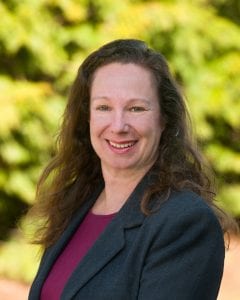
Congratulations to Dr. Jennie Moore, BCIT Director of Institute Sustainability, for being awarded a Knowledge Synthesis Grant from the Social Science and Humanities Research Council (SSHRC). This funding will support Jennie and her team’s research project on Measuring and Managing Living within Earth’s Carrying Capacity, part of the Knowledge Synthesis Program.
SSHRC is the federal research funding agency that promotes and supports post-secondary research and training in the humanities and social sciences. With support from the Natural Sciences and Engineering Research Council (NSERC) and the Canadian Institutes of Health Research (CIHR), SSHRC launched the Knowledge Synthesis Grant program to foster a deeper understanding of the state of knowledge regarding the absorptive and productive capacity of global ecosystems, as well as the connections between natural and human systems. The resulting syntheses will identify roles that the academic, public, private and not-for-profit sectors, as well as Indigenous rights-holders, may play in advancing and supporting mitigation and adaptation responses, and may inform the development of effective tools, robust policies and sustainable practices required to support the transition to an equitable, prosperous, healthy and sustainable future.
“We are thrilled to have support from Canadian research agencies and to have a team of local and global experts collaborating on this research project. Information and data gathered from this research will provide insights to valuable tools, metrics, policy advice, and training to help identify the actions a city and its people can take to close their sustainability gap,” explained Dr. Jennie Moore, BCIT Director of Institute Sustainability.
Empowering cities with information and tools to live sustainability
Jennie and her collaborators will explore how living within the Earth’s carrying capacity could be measured and managed at the city scale. The purpose is to understand how a handful of high-consuming cities around the world are achieving absolute reductions in energy and material throughput and how this might be translated into policy and action in Canadian cities.
Jennie’s project collaborators include Dr. Claudiane Ouellet-Plamondon from École de technologie supérieure at the Université du Québec, UBC Professor Emeritus William Rees, originator of the ecological footprint concept and co-developer of the ecological footprint analysis, David Lin of the Global Footprint Network, and Alastair Moore, a registered professional planner with expertise in creating one-planet cities and Director of think-and-do-tank One Earth.
The synthesis project will undertake a critical review of the conceptual frameworks, policy tools, and methods available to measure whether an average lifestyle in a given city or community – if adopted by everyone on Earth – would result in humanity living within Earth’s carrying capacity.
Over the next nine months, Dr. Moore and the project team will identify the economic, political, and lifestyle changes needed to measure and manage living within Earth’s carrying capacity at the city scale. As well, the team will assess which policy and planning frameworks have been used effectively by local governments to achieve an overall reduction in demand for nature’s services.
The project will include a literature review synthesis and engagement with practitioners and traditional knowledge holders working to advance sustainable cities and lifestyles. Project updates will be shared on the Ecocity Centre of Excellence website and the final report will be available in the spring of 2021.

Congratulations Jennie! Best wishes, Rohi